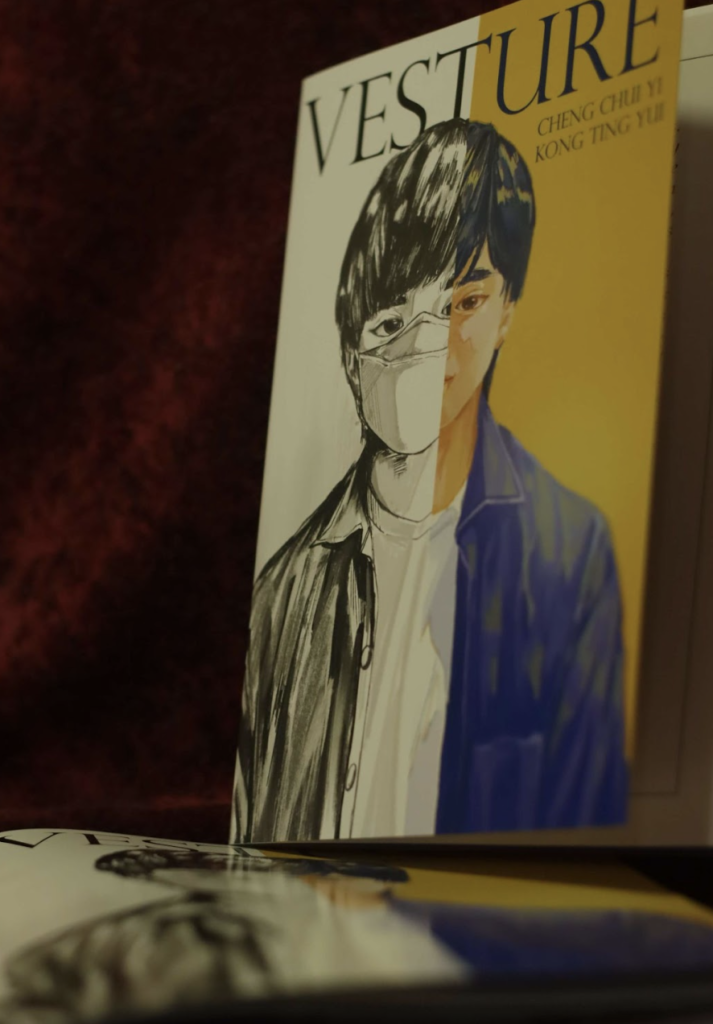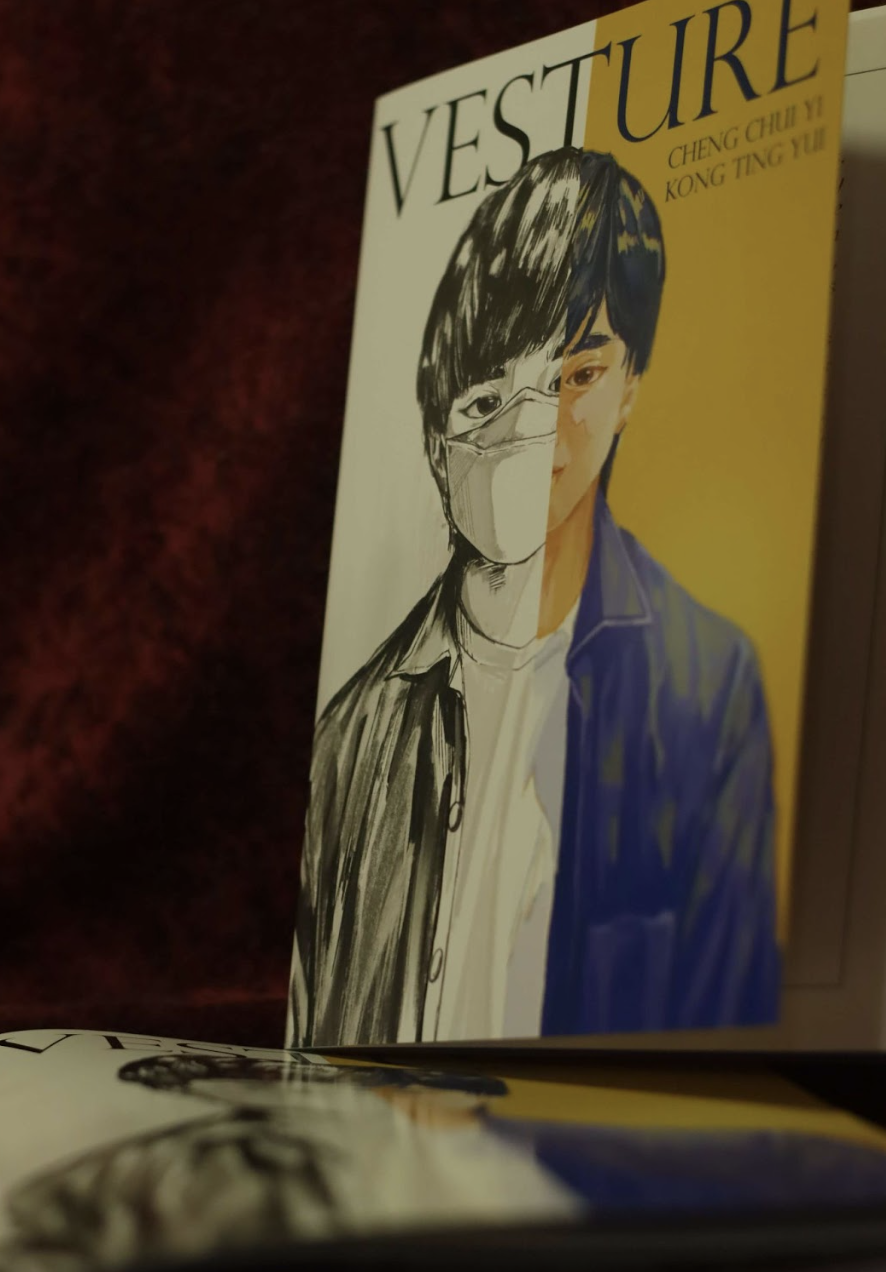
This project involves the contributions of Ms. Cheng Chui Yi Chloe as the painter—special thanks for her hard work.
What Vesture is about:
Vesture is an album that includes portraits of the five interviewees with and without masks. Besides the portraits, Vesture includes the interviewees’ opinions on the mask policy in Hong Kong, no-mask anxiety, and their choice of wearing masks.
What is no-mask anxiety:
As the COVID-19 pandemic continues to affect people worldwide, many have adapted to wearing masks as a necessary precaution. However, some individuals have developed a fear of not wearing a mask, even when it is safe to do so. There are several reasons why people may experience anxiety when not wearing a mask, including peer pressure, health concerns, judgment from others, and other reasons.
What no-mask anxiety does:
No-mask anxiety can cause people to feel stressed, anxious, and overwhelmed. It can also lead to social isolation and avoidance of situations where wearing a mask is not required. In severe cases, it may even interfere with daily activities and quality of life. It is important to address these feelings and seek support if needed.
How the album contributes a meaningful solution:
Given the ongoing pandemic and the ongoing debates around mask-wearing, educational resources must be created to help individuals make informed decisions. The album could be a powerful tool to raise awareness about why people should or should not continue wearing masks. Showcasing different perspectives and ideas can help individuals understand the issue’s nuances and make informed decisions based on their values and beliefs.
Moreover, the album can also help foster greater understanding and reduce conflicts. When we take the time to listen to and understand other people’s viewpoints, we are more likely to appreciate their perspectives, even if we disagree with them. This can lead to more productive conversations and fewer conflicts, as people are more willing to engage in constructive dialogue.
